The laws covering farms and farmers have been changed, and oddly I haven’t seen anyone in our industry talking about it. Either this went under everyone’s radar or there was something no bueno in the changes, dunno.
Let’s take a look at what they did, but before we do that, let me say that a large part of why I farm is because there are such favorable laws in North Carolina concerning farmers. We are exempt from building codes, business licenses, annexation. The list goes on and on. Here is a great article written in 2011 about farming and farmer protection laws.
That article is a few years old. The bill that was just passed this last session updates a few key parts of that article. The bill itself was Senate Bill 615. If you are so inclined, you can read it for yourself. It’s easier than you think. The changes to the law are the parts that are underlined, the deleted parts are the parts that are struck through, so it’s easy enough to see what was changed.
I’m going to unpack the bill a bit here, at least the highlights. I have a number of fellow farmers who follow my blog so hopefully this will put the legalese into English for them and serve as a reference for me later. For clarity, I am not a lawyer, nor have I ever played one on TV. This is my read of the new law and my opinions as a small farmer. My feeling overall is that laws of this sort are beneficial to farmers and I welcome them.
The format I’ll use here is to post a header from the law, then I’ll unpack the meaning of what is going on.
The first section is:
EXPAND FACILITIES EXEMPT FROM EMC RULE Section 2.(a)
This is an air quality rule. It doesn’t make farmer facilities exempt forever, just until the rules are readopted by the controlling agency. I’m guessing the actual exemption or change in the law will be once they are readopted under clarification from the legislature.
Basically somebody with some voice with the legislature got cross with the air regulatory people. Rather than trying to change the law, the legislature directed that the rules be reevaluated and re-implemented per their already written laws, which probably already exempted the farmer in question. In other words, they overstepped their bounds and were told to go fix it, no law needed to be changed.
PRESENT-USE VALUE CHANGE Section 3.(a)
This is the big one in farming. Having farmer property tax rates on your farm is the difference between farming and not farming for most people. The changes here are that grazing fees, like I pay for our leased farm, are specifically allowed now by this law. Also bee keeping has been added as well. Basically some local authority must have tried to say to a farmer that grazing rent doesn’t count, where crop rent does. Stupid, but I’m guessing a regulator tried it. Good, this one helps.
ABANDONED LIVESTOCK AMENDMENTS SECTION 4.
This is a whole rewrite on abandoned livestock. I’m sure this is a problem, but not one I deal with. Basically it makes the farmer/owner responsible if they abandon the animals. Makes sense.
CLARIFY THE AUTHORITY OF THE DEPARTMENT OF AGRICULTURE AND CONSUMER SERVICES TO ADOPT AND ADMINISTER FOREST PRACTICE GUIDELINES FOR PURPOSES OF THE SEDIMENTATION POLLUTION CONTROL ACT SECTION 6.(a)
There is a whole big section on Forestry. Nothing in there is too big of a deal to me. Some authority to inspect to make sure forestry practices are being followed, some pay changes, etc. Nothing that I see affecting me or your average farmer.
CLARIFY ACTIVITIES INCIDENT TO THE FARM AND AGRITOURISM SECTION 8.(a)
This one is pretty big. The legislature continues to expand and clarify their intent that farmers and farm buildings are to be left along by local code authorities. When we built a barn when I was a kid I was exposed to this when we got our permit. The permit said, “No permit required. Exempt.” I asked the guy at the county office what to do if an inspector showed up anyway. He said the call the Sheriff and have him removed for trespassing. That was nearly 30 years ago, and it’s just gotten better for farmers since then.
A big question over the past few years has been what is agritourism. If you host a wedding, does that mean your barn is no longer a barn? What if you have a rodeo and charge admission? There have been people trying to claim that having a wedding does indeed mean your barn is no longer a barn and therefore you are no longer a farm.
This section continues the trend of defining pretty much whatever you do on your farm as farming or agritourism. It also defines that residences are exempt from code enforcement as well as farm buildings, whether that residence is for the owner, manager, or lessee. Doesn’t matter. That’s pretty powerful as it means as a farmer we can build the buildings we need to support our farm, up to and including our homes, without having to put up with the mother may Is from the city/county.
This probably isn’t as big of a change as it sounds like, since most farmers I know don’t ask and don’t tell already. You’re a mile off the road and nobody sees anyway, just build it and get on with farming. It’s not like we’re back here dealing with HOA rules. There is a provision that says you need to meet current code, so it’s not the wild West.
There is a provision in this section that also removes the provision of having a farm number from FSA as a qualifying condition for being declared a bona fide farm. For most people, this is no big deal as there are plenty of ways for a real farm to qualify. It also keeps the FSA folks from having to be the police. They are instead supposed to be supporters of farming. I know they had people applying for farm numbers just to get an exemption.
Being exempt from building code certainly invites people to commit fraud. This section adds a penalty for people who claim farm status, build a building, and then loose farm status. Certainly makes sense to me.
Ҥ 143-138. North Carolina State Building Code.
So residences are exempt from inspection, but must follow the building code. However non-residence farm buildings don’t need to follow code. If you think this through it makes sense. I built a smoke house on my farm. There is no reason I should have to put in handicap access, emergency egress, windows that are up to code, etc. It’s a smoke house. It’s a closet that almost catches on fire but doesn’t quite. Same for a storage shed, a horse stall, etc. These things are understandably shabby and make do. We build ours from lumber sawn on the farm, not code specified lumber from Lowes.
This section clarifies that farm buildings are indeed exempt if they are on a bona fide farm. It also continues additions to what is a farm building, bringing in therapeutic equine facilities, something that is added in various sections of this law.
ELIMINATE COUNTY AUTHORITY TO ADOPT ZONING REGULATIONS GOVERNING SWINE FARMS SECTION 9.(a)
Ever hear that there is a lot of pork in politics. Here it is. Never doubt the pork industry has friends in NC. There are several sections in this law rolling back limits or requirements on the pork industry. I’m generally in favor of less government period so in that vein, I’m good with it. And I won’t use the words special interest here at all.
ALLOW FOOD COMPLIANCE INSPECTORS TO DRIVE STATE VEHICLES WITHOUT STATE TAGS AND BUMPER STICKERS SECTION 10.
Now our inspectors have obvious cars and government plates. With this change they can sneak up on you. Doesn’t matter to me, we do everything the same regardless. Plus we have a good relationship with our inspector. He’s a good guy and tries to teach before he enforces which I appreciate. From what I hear they all are not that way though so your mileage may vary.
Skipping a bunch of stuff and then
EXEMPT FARM TRUCKS THAT STAY IN STATE FROM HAVING A USDOT IDENTIFICATION NUMBER SECTION 15.
This one affects us. We don’t get a normal inspection on our vehicles. They are inspected under DOT rules. However per those rules I’m supposed to put DOT numbers on the side like a class 8 truck. To be honest, I’ve just never done it and gotten away with it. I didn’t want numbers plastered all over the side of my trucks. Now, thankfully, I’m legal to do what I was already doing. This only applies if your vehicle stays in the state of NC. If you go out of state, then federal rules apply.
EXEMPT FARM VEHICLES ENGAGED IN INTRASTATE COMMERCE FROM CERTAIN FEDERAL MOTOR CARRIER SAFETY REGULATIONS SECTION 17.
This goes along with the previous one. No numbers are needed, and farm trucks are exempt from the safety rules as well. I love sections like this. There is a long and winding list of all the things the state can do, you have to do, the penalties if you don’t do, the paperwork you have to complete you proved you did it, etc. Then at the end is a little section that says, “Oh, except for farmers. They are exempt.” I think the word exempt is my favorite word in the English language.
AUTHORIZE WINE SALES AT FARMERS MARKETS SECTION 19.
This one helps our blossoming wine and spirits industry. And with it our friends down at Adams Vineyards. I’m glad to see this one. This means revenue and opportunities for NC. Not just farmers, all people in NC. Regulation is what has held this back, I’m glad to see any reduction in regulation.
There is some stuff about the sales tax exemption. It’s yada yada.
AMEND G.S. 95-79 SECTION 20.5.(a)
Lastly, there is a provision basically making unions, or purchase contracts that require union labor, outlawed in NC for farmers as well. You can have a union, but you cannot bind the farmer nor can you force payments from wages directly to the union (how they get their money).
This is a big deal if you are a large commodity farmer selling into the open market. It’s common for large companies to be unionized, especially Northern and Mid-Western companies. Then the union requires that who they do business with is also union. This is a way of pushing unions into non-union areas. The seller cannot negotiate this away as both businesses are bound. However this law makes that provision illegal on its face. The farmer cannot be bound by the provision under NC law, so the two businesses can trade with one another and neither are in violation.
If a group wants to unionize and pay membership voluntarily, then they can by my read. However its my experience that unions don’t work unless membership and payments are compulsory so basically this means farms are not a place where unions can take root. I’ve seen some efforts here or there to unionize farm workers so I’m guessing this is a measure against that movement as well.
And that’s the end. All in all, a number of positive steps for farmers in NC.
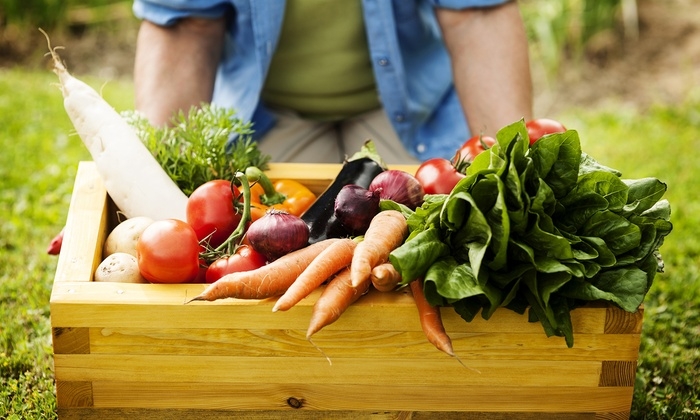
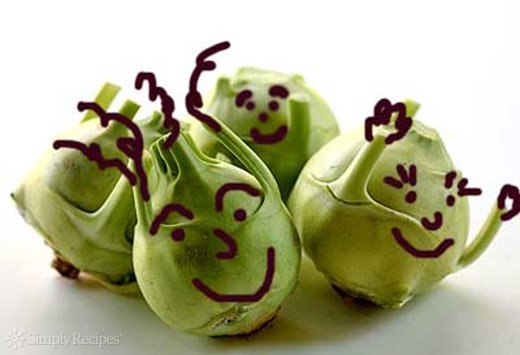
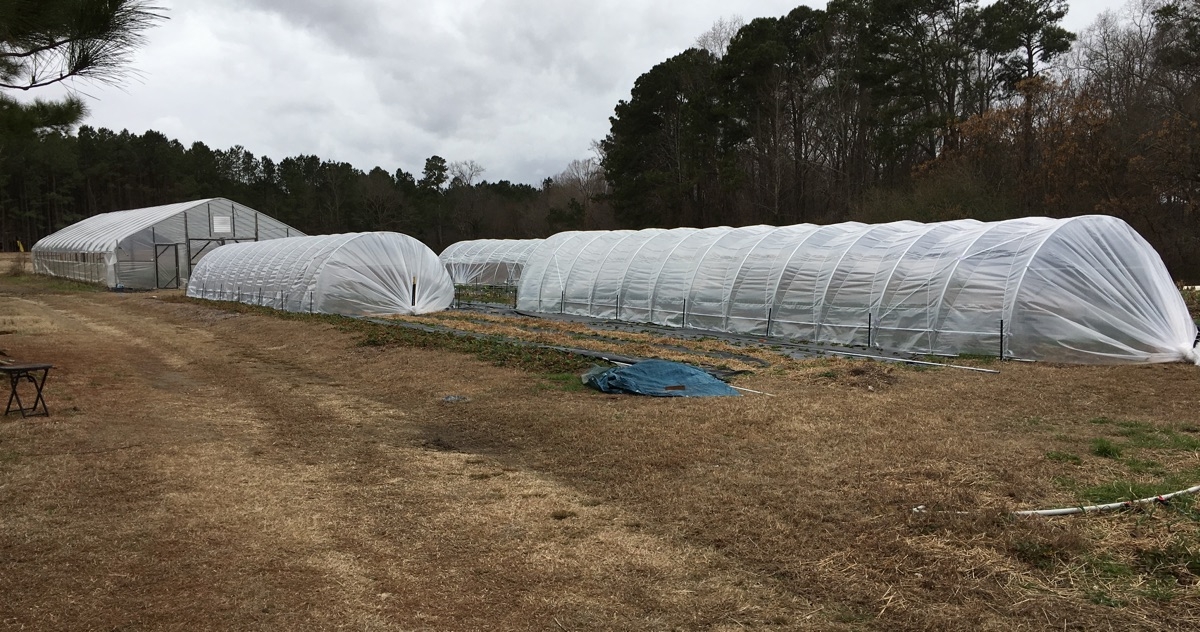
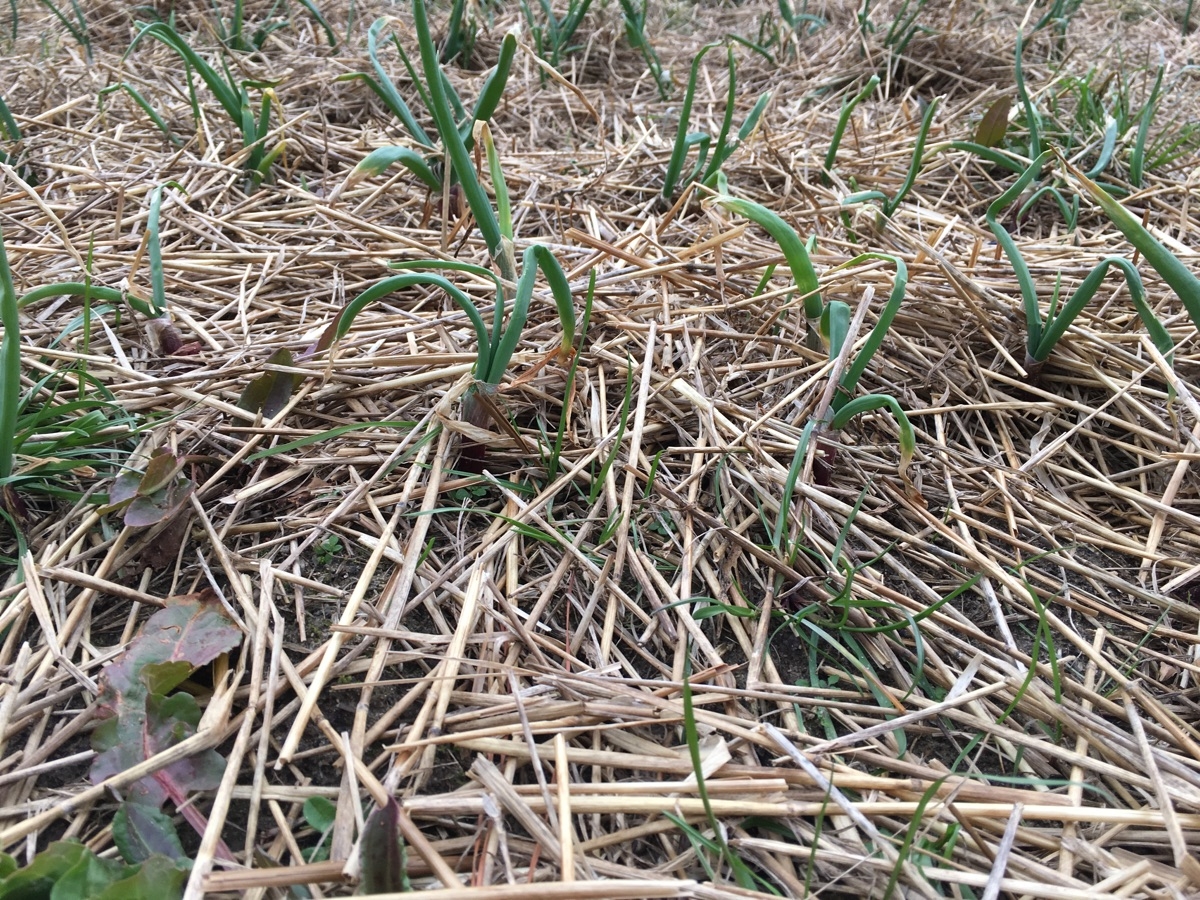
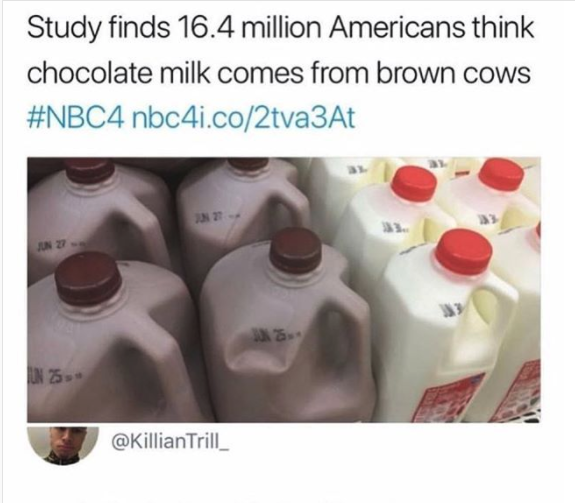

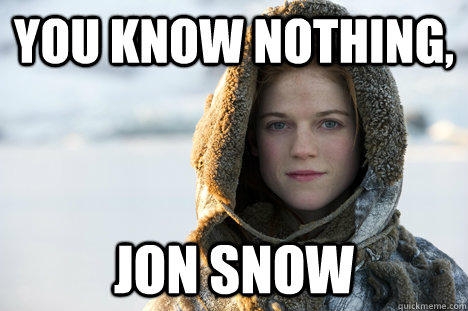
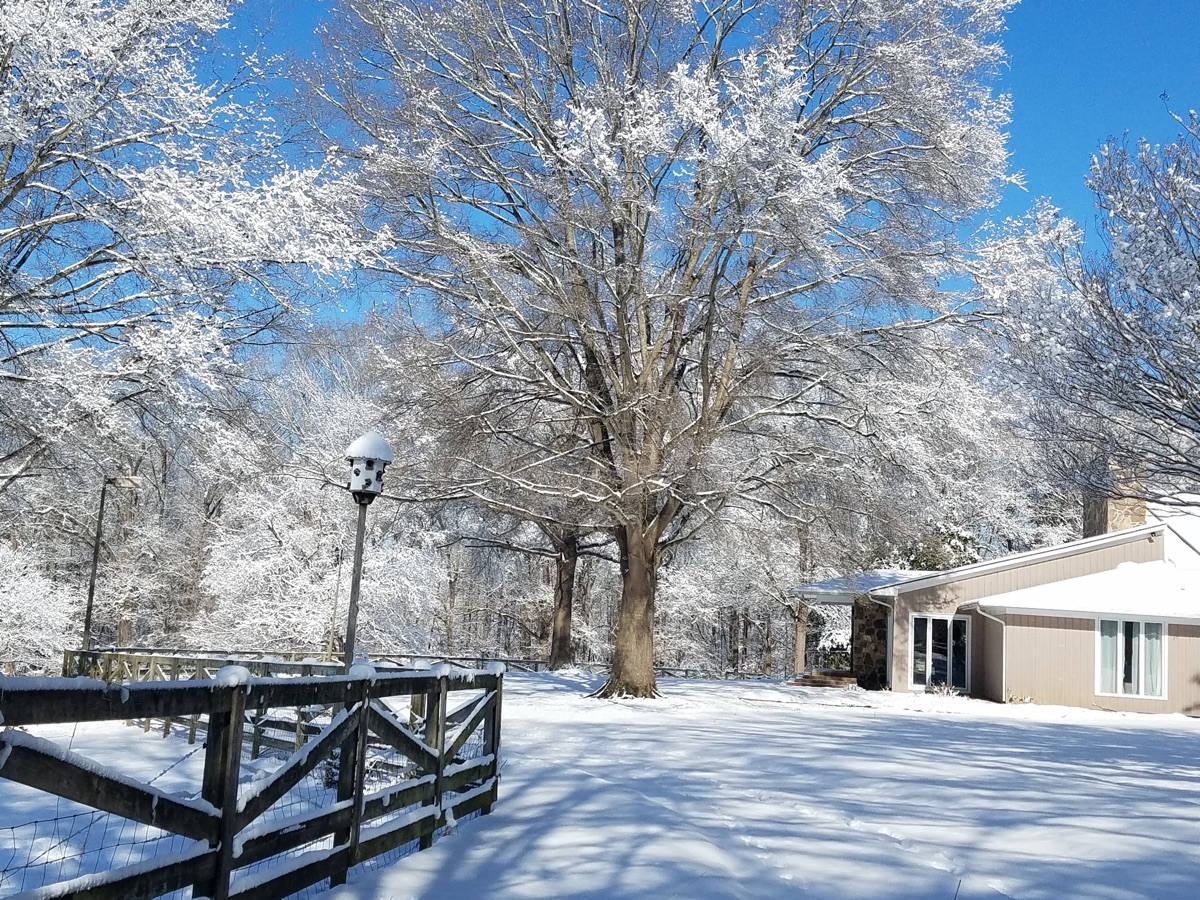
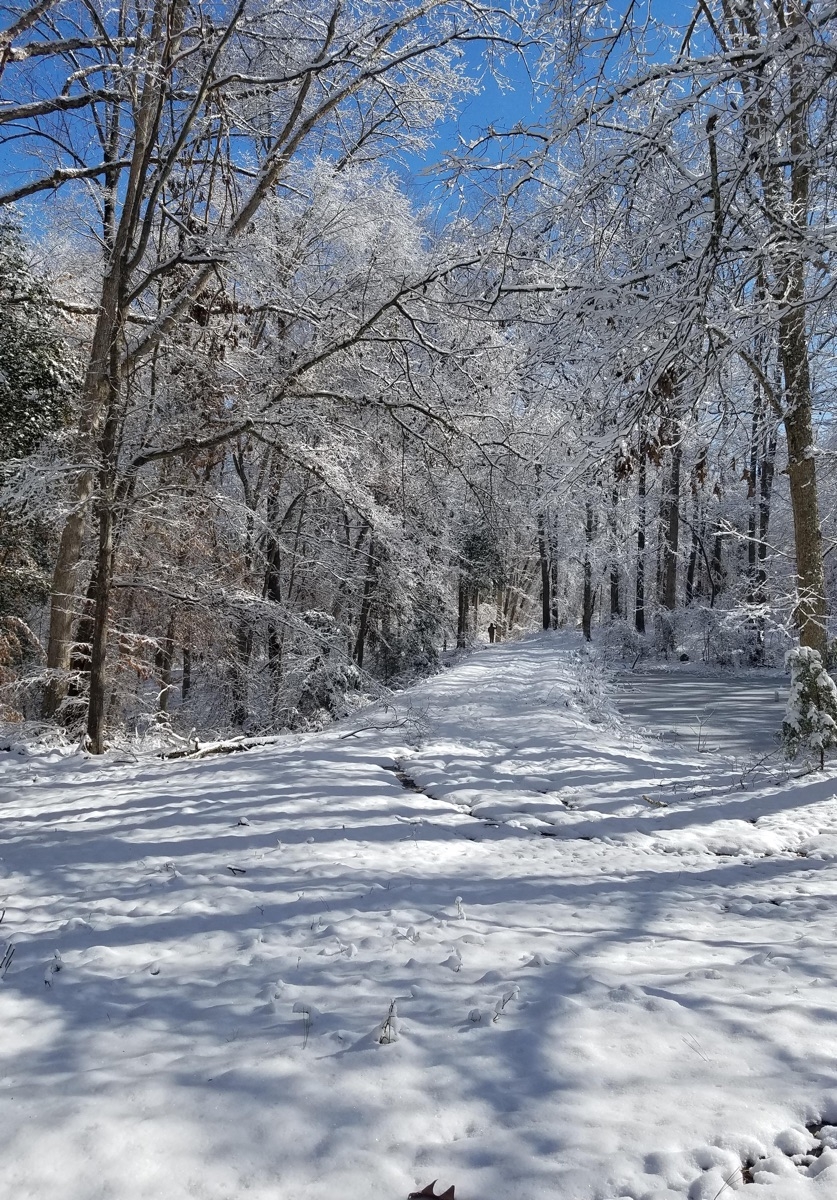
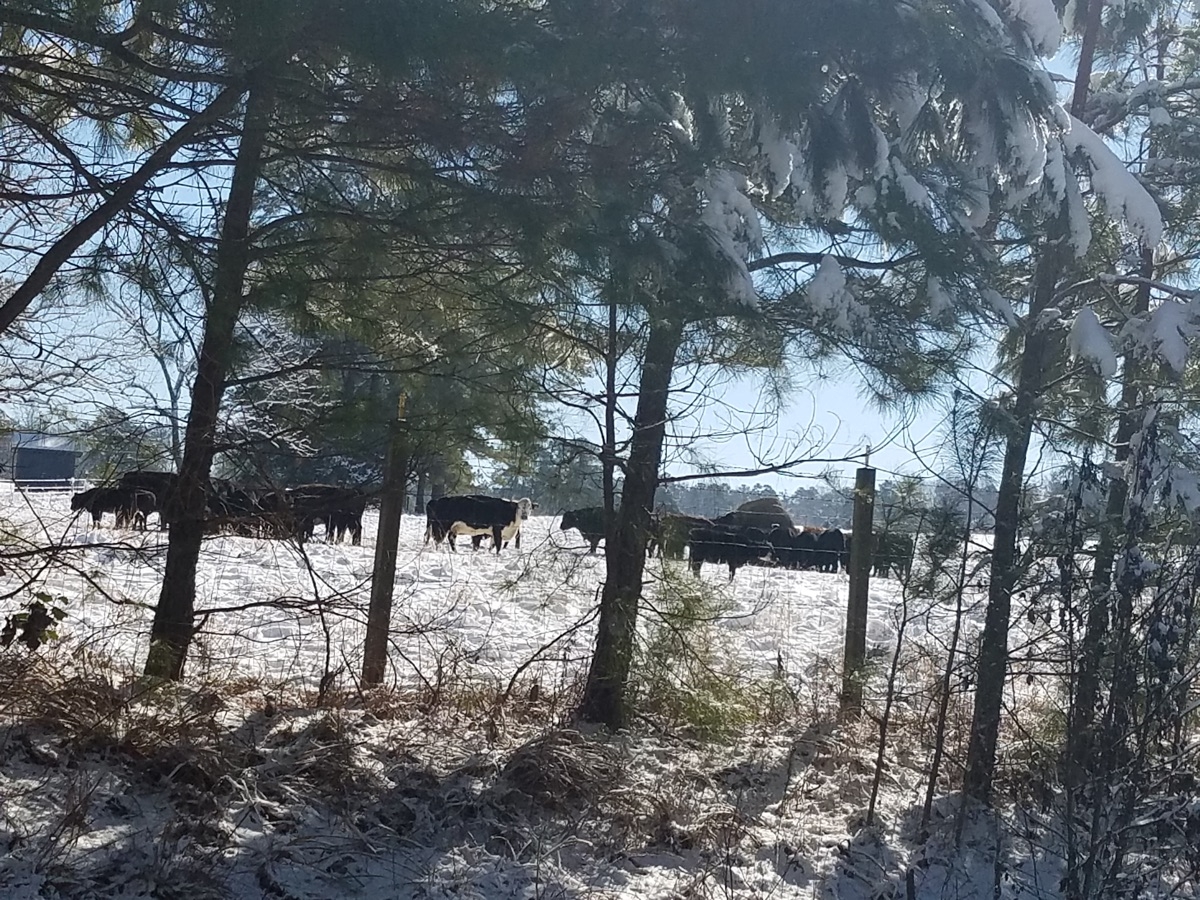
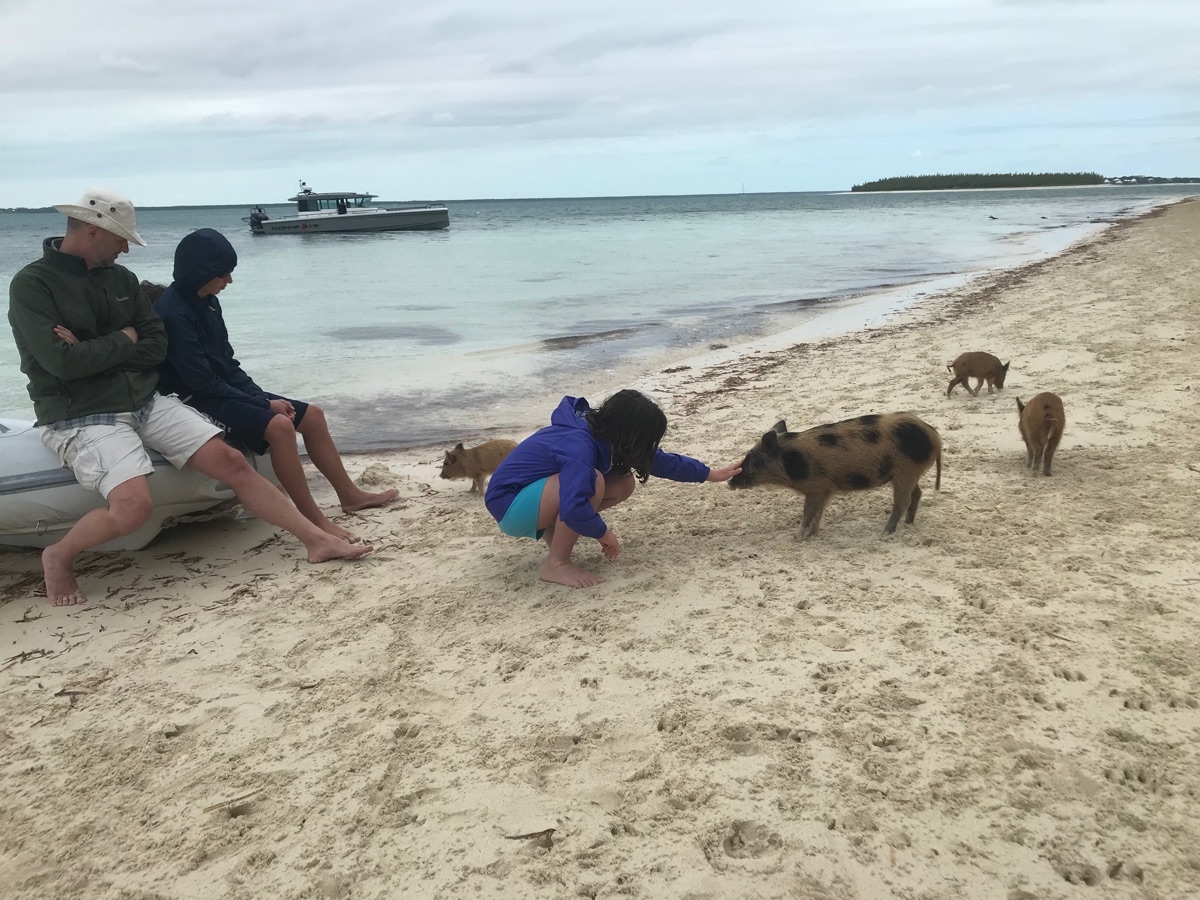
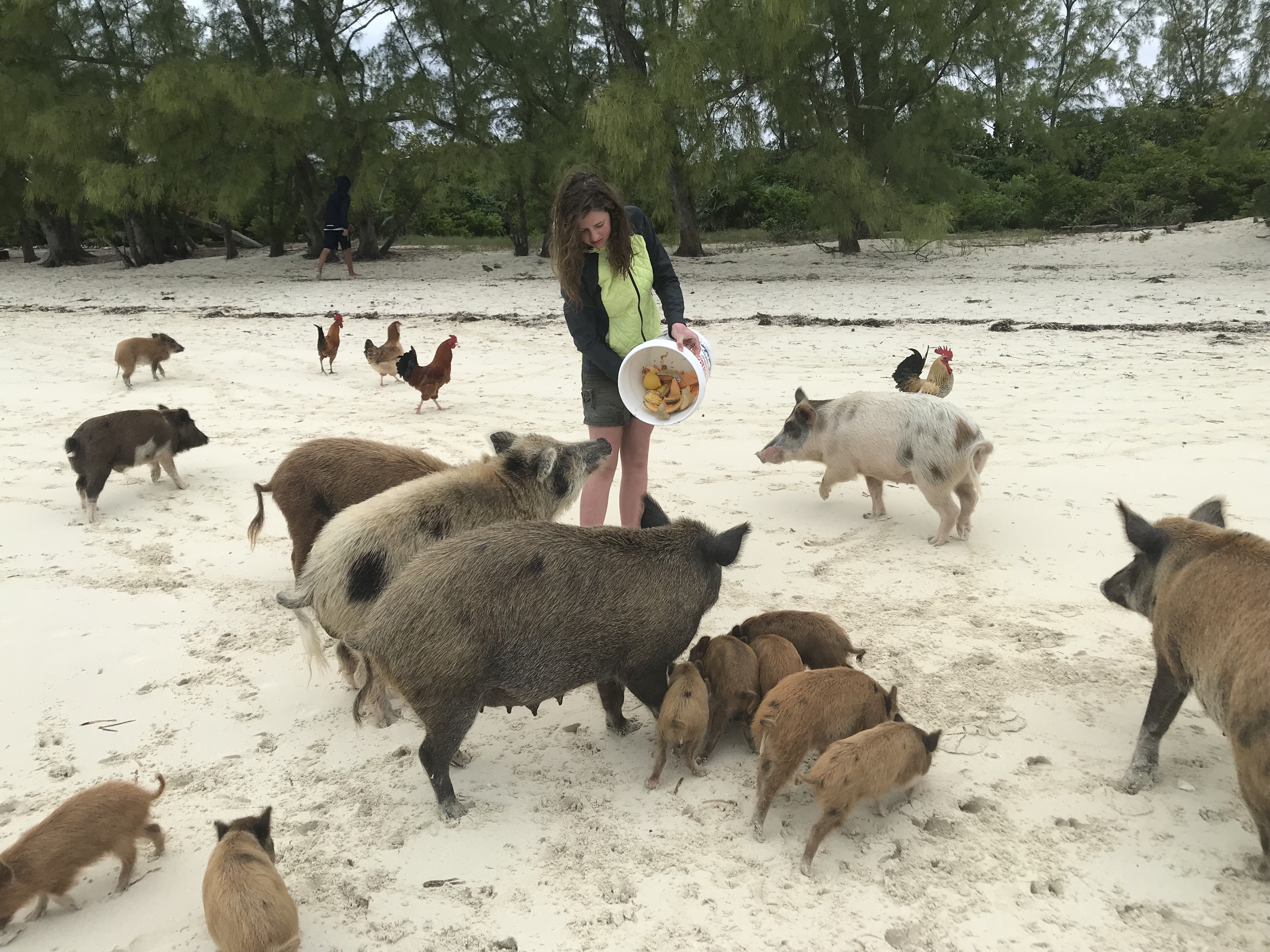
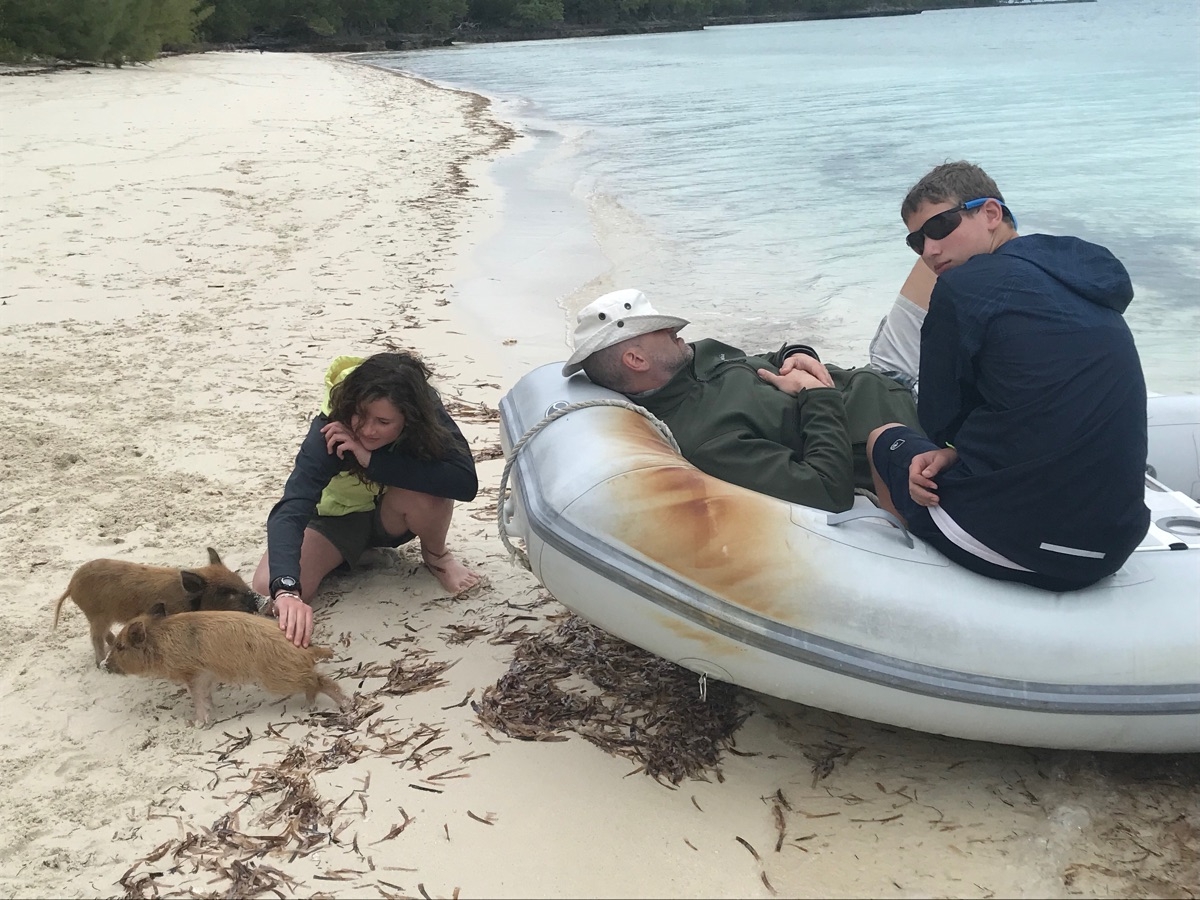 We let the girls do all the pig stuff while we secured the boat and wondered, somewhat grumpily, where the girls were when we were feeding our own pigs routinely. Oh well, everyone had fun. Fun to go, fun to be home.
We let the girls do all the pig stuff while we secured the boat and wondered, somewhat grumpily, where the girls were when we were feeding our own pigs routinely. Oh well, everyone had fun. Fun to go, fun to be home.